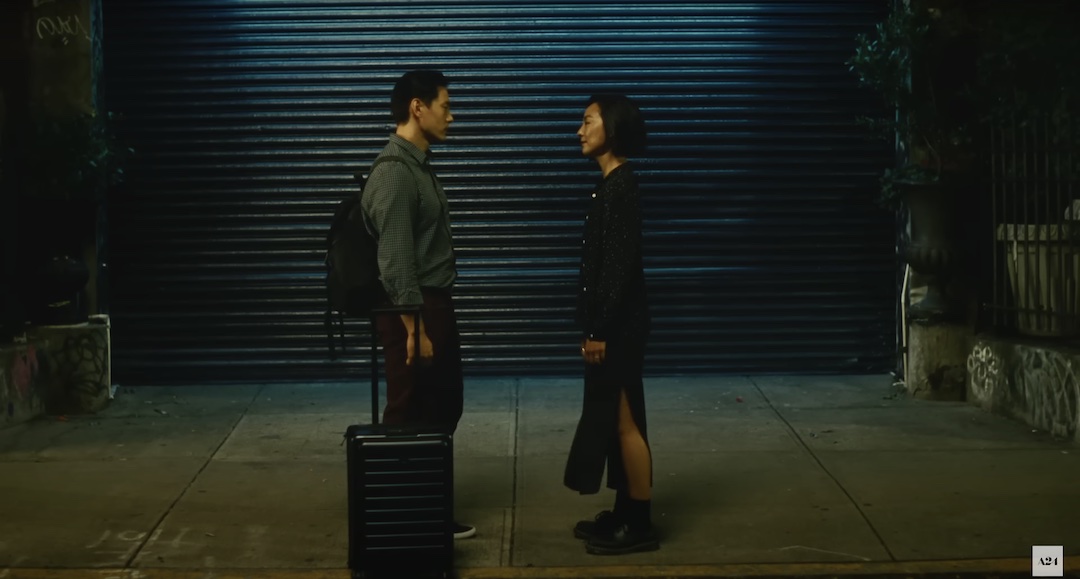NOTE: This review contains spoilers and will mention details on major plot points and themes.
There’s the red string of fate that binds people together in Chinese mythology. In the Philippines, we have the concept of “tadhana.” And in Korea, there’s “inyun.”
Inyun is at the center of A24’s latest film. “Past Lives” is South Korean-Canadian playwright Celine Song’s debut film and stars “Russian Doll’s” Greta Lee and “Love to Hate You’s” Teo Yoo.
The film follows Na Young (Lee) and Hae Sung (Yoo), two childhood sweethearts who are separated when Na Young’s parents (a successful film director and an equally successful artist) decide to immigrate to Canada to seek greener pastures.
Fate intersects their adult lives in two 12-year intervals, first online (Na Young now going by her anglicized name Nora) then a second time in the flesh, 24 years after their childhood fling in Korea.
The long-awaited reunion prompts them to spend time with one another—to the chagrin of Nora’s white, Jewish husband Arthur played by John Magaro. This, of course, brings up all sorts of feelings and memories—and thus begins an intimately beautiful (and painful) descent into the topic of fate, the choices you make, and all it brings with it.
Siri, play ‘Midnight Rain’ by Taylor Swift
From the start of the film, we see the stark differences between Nora and Hae Sung. Nora had always been the achiever who cried after Hae Sung bested her in a test and Hae Sung just seemed to quietly trail behind her.
Their differences grow more apparent the older they get. The lives they end up leading are striking reflections of their intrinsic traits: Nora is a go-getter, who immigrated twice to end up in New York City to pursue her dreams, and Hae Sung, an engineer living an ordinary life and going with the flow.
In terms of their relationship, though, the roles are fundamentally switched.
The only bold decisions Hae Sung makes during the film are ones that revolve around Nora. He was the one who first reached out to her via her father’s movie’s Facebook page. Then 12 years later, he decided to bite the bullet and visit New York to see her.
Nora, in contrast, seems to go where the wind takes her. She happily receives—and responds to—his online affection via choppy Skype calls in different timezones.
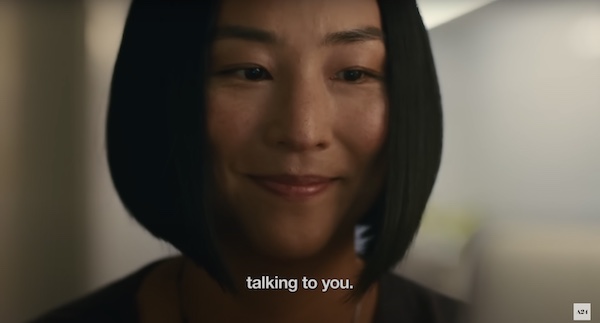
It’s only when she realizes that she’s falling hard and fast for a man who won’t even make an effort to see her in real life—a potential hurdle to her Nobel and Pulitzer aspirations—that she slows down and suggests that they take a break.
And that’s when the dynamic shifts again.
Once Nora makes that decision, Hae Sung begrudgingly agrees. Both of their lives sail on. Nora marries Arthur, a fellow writer she met at the Montauk writing residency, to expedite her U.S. citizenship.
What makes their dynamic even more layered is when the factors of gender norms and their professional backgrounds come into play.
The fight against the self—mostly
Patriarchy plays a huge role in South Korean culture. Men are typically the decision-makers, while women are expected to take a more subservient role. In contrast, Nora has been headstrong, “greedy” (their words, not mine), and ambitious, while Hae Sung is a lost puppy type following her around.
More interestingly, though, Nora is the writer and Hae Sung is the engineer. We’d expect that she’d be the hopeless romantic and he’s the more level-headed person in the duo, but what we have is the exact opposite.
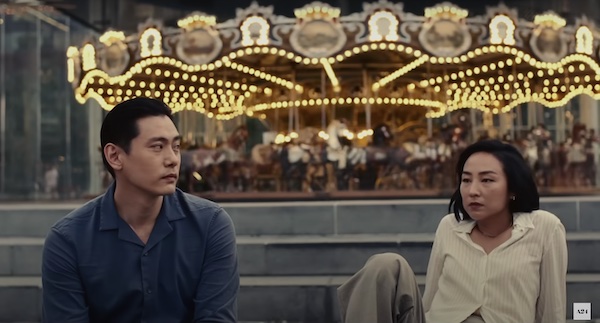
Nora also seems to be the colder of the pair. Throughout the film, we see her cool-headed and rational in terms of all the decisions she makes, and those that are made for her.
When her family first moves to Canada, instead of crying because she’s leaving behind her sweetheart, she’s a little excited to move away and win a Nobel prize. She’s convinced Koreans living in South Korea don’t get them.
We see a deft precision in how she deals with her feelings and manages her expectations. She shrugs off her husband’s accusations that she finds Hae Sung attractive, convincing him that he’s too “Korean” for her and that she’s in love with (and married) him.
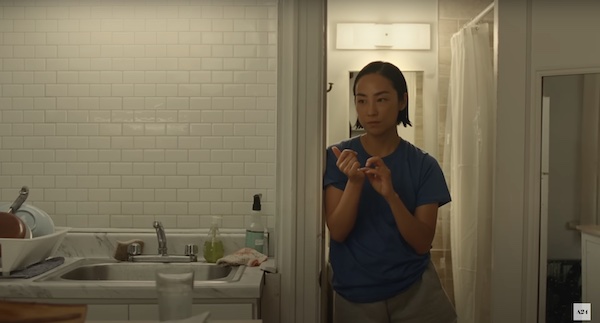
In her interactions with Hae Sung, she wears a mask of neutral pleasantness we can only get to peek through when the tension builds so high it ends up breaking.
It isn’t until the climax of the film that Nora breaks down after a seemingly casual (but so so emotionally charged) conversation with Hae Sung about how this life might already be a past life. Before hopping on an Uber, he tells her that he’ll see her in their next life.
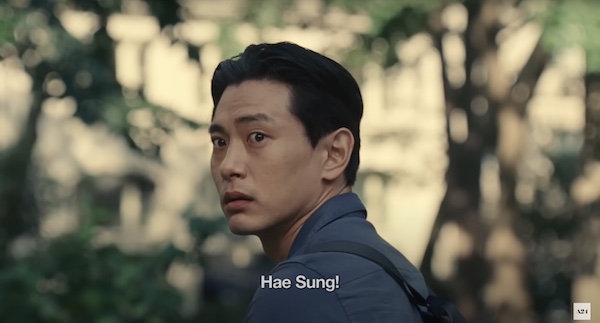
Hae Sung, on the other hand, wears his heart on his sleeve. You can tell there are feelings bubbling underneath the surface because they make an appearance through his glances and expressions. Even when he looks away from her there’s so much feeling.
From Nora’s first departure from his life, his military service, the second time she called things quits, and their final goodbye scene, Hae Sung has been the one to outwardly express his longing and growing feelings towards her.
Opposing forces are present inside both Nora and Hae Sung. Nora actively fights against the stereotypes of her Korean upbringing, while Hae Sung is—at least from what we see—a gentler representation of your average Korean man (even if Nora said otherwise to Arthur in the bathroom scene).
Those dichotomies and dualities can also be found in Nora’s husband, Arthur. While Arthur self-identifies as the “evil white guy coming in between childhood sweethearts,” his character is much more than that.
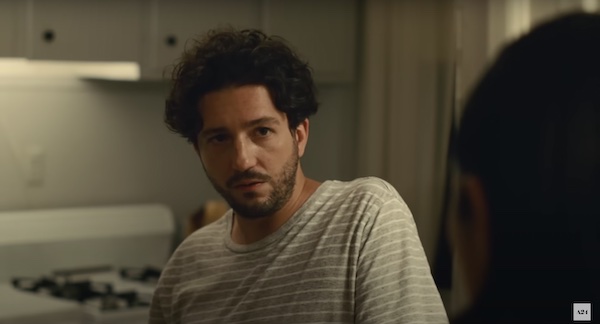
Like Hae Sung, Arthur wears his emotions on his face, and he mostly tells us how he’s feeling.
Beyond that though, we see his visible internal struggle. He fights against his warranted jealousy, feelings of inadequacy, and his intrinsic fragile masculinity (which he’s obviously trying to be better about).
It cannot be easy letting your wife traipse around the city with her (way more conventionally attractive) childhood sweetheart in tow, but he acquiesced for her sake, and in order to battle against his own ego.
Hae Sung is a representation of Nora’s past, while Arthur is a representation of her present and the life she’s built for herself in America. There’s even more to digest when we dig even deeper.
To Nora, Hae Sung is a tangible symbol of Nora’s Korean-ness, and actual inyun, while Arthur is the physical embodiment of the choices she’s made for herself and the freedom that moving to North America offered.
When Arthur half-jokingly tells Nora that it would make for a good story if she leaves him for Hae Sung, she assures him that she won’t leave him (and all that she’s worked for) to run back to South Korea to be with him.
And she didn’t.
And that’s where the beauty and pain of the story lies.
‘The rest of the world falls away—and it’s only us’
Space and silence are the two elements that amp up the tension and bring magic to the film. In the scene where Nora and Hae Sung are on the ferry to see the Statue of Liberty, there’s an insane shot of them with their backs facing the camera and people all around them doing touristy stuff.
There’s also another scene that evokes a similar emotion: when they’re both on the subway with their hands almost touching on the pole. The shot is framed by the subway doors from the other car, which looks very much like a nod to Wong Kar Wai’s “In The Mood For Love.”
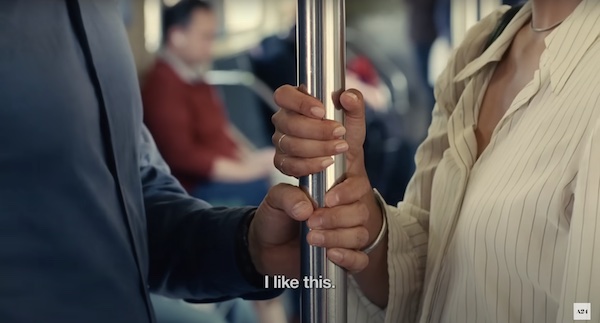
In both films, there’s a voyeuristic quality to how it’s shot. The scenes are always framed by objects (or people) that give off the impression that you’re looking in from another room or just simply peeking into a private moment you’re not supposed to see.
The sheer intimacy of these scenes is unparalleled.
You see the world going on around them. There are other people on the ferry also on vacation, and there are also other people on the subway who are just milling about their daily lives. But for Nora and Hae Sung, the rest of the world falls away and we’re left with a scene that’s so deeply private that we feel like we’re the prying eyes.
That feeling is magnified and literally played out on screen during the scene where they’re all having a drink at the bar and Arthur literally disappears from the background. Even if Nora and Arthur have the required 8,000 layers of inyun to end up together in this lifetime, it was Hae Sung she was talking to the entire night.
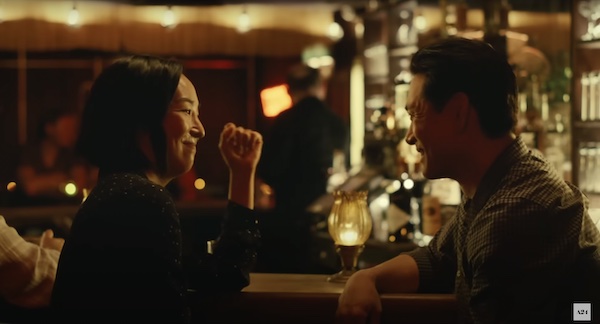
Nora and Hae Sung are in their own little world, with Arthur begging for scraps of conversation through her translations that don’t do the conversation justice.
That evening in that dimly-lit bar, Arthur’s fear—that there’s this whole place inside of her where he can’t go—came true. He was an outsider. Even if he was right next to her, they were worlds away.
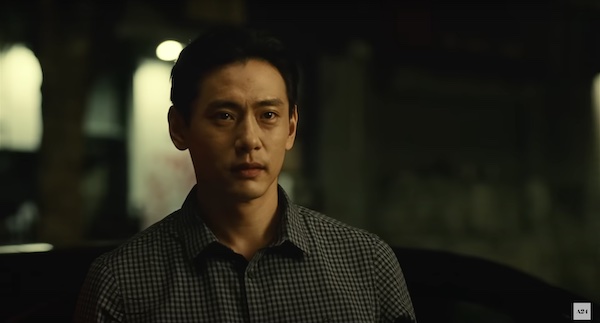
At the end of the film, the tears she finally shed after over an hour of emotional edging were for the what-ifs, the life she could have had with Hae Sung.
That cathartic moment also tells us the truth about what she was feeling the entire time: there was love there. And that love—and the truth of the situation—was something she dreaded.
But in the moments we see before Hae Sung’s departure, the strings of destiny glow through the screen with the warmth of unspoken affection.
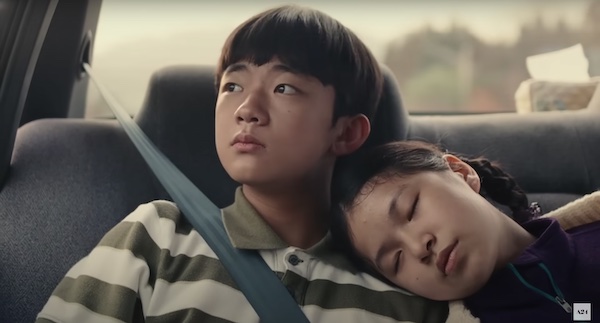
Physical touch is also another aspect this film used sparingly but masterfully. It’s taboo in South Korea for unrelated men and women to make physical contact (or skinship, as it’s known locally in South Korea). During their first meeting, Hae Sung is surprised when Nora comes in for a hug.
Before he leaves, he’s the one to initiate a tight embrace that Nora returns. All the love they have for one another is in that hug and it reduced me to shambles. When she finally returns home to Arthur with a tearful apology after sending Hae Sung off, her husband engulfs her in his embrace—one that she does not reciprocate.
When Nora and Hae Sung are together, no matter how many people are around them or who they are, the rest of the world doesn’t exist. They’re the only two people in the entire universe, and that’s how tightly the strings of fate have woven them together.
While I thoroughly enjoyed (and was completely devastated by) the film, that doesn’t mean there’s no criticism surrounding it. One such critique is that it’s shallow and doesn’t dig deep enough into specific plot lines—like why Nora’s parents moved away from their successful lives in South Korea.
There are also comments about how some shots add little to the storytelling, and how that time would have been better devoted to the stories of the people around them.
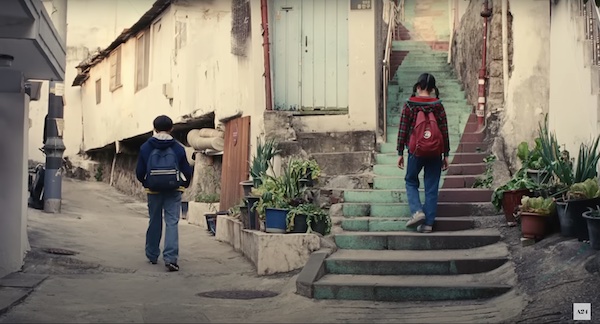
Some diasporic Asians are also saying that the film didn’t paint a full and accurate depiction of life in the diaspora.
While those are very valid critiques, for this Filipino-born and raised writer, “Past Lives” was more a story of two people who were probably born to meet, but not fated to last. It’s a story about love, and more often than not, that’s enough.
‘Was there a lifetime waiting for us in a world where I was yours?’
The bulk of the film rests on the idea of two people fated to each other. But that doesn’t mean they end up with one another. At least not in this lifetime.
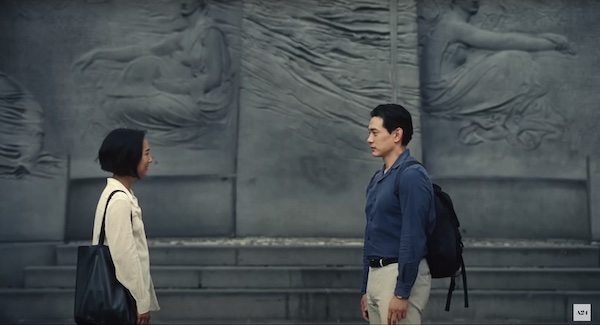
I’ll say it now, awards await “Past Lives.” It’s an almost pitch-perfect representation of love, fate, and the actual power we have over our lives. The cast delivered stellar performances (mostly with their brows, eyes, and foreheads no less). The utilization of space, distance, and what isn’t said is what makes this film shoot itself straight into your heart—and out of your eyeballs in the form of tears.
Though the movie was marketed to be a film about fate, it’s equally about the choices you make (or don’t make) and how they affect your life. It’s a reminder to be true to yourself, but also to be loyal to what you really want out of life.
For Nora, choosing herself was the right choice—at least in my opinion. To be completely honest, I don’t think it was a difficult choice to begin with. She knew her talent and how far it could take her, so leaving Hae Sung (again and again) was the right move.
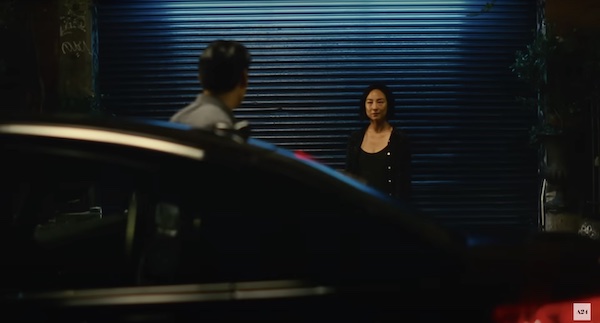
The realist (and writer) in me wants to congratulate Nora for making the right choice. But of course, the romantic in me is crying like a baby coming home from the bar. No matter how satisfied I am with the choices Nora made for herself and her future, the tears still flowed like bottomless mimosas during Sunday brunch.
Now excuse me as I blow my nose and wipe away my tears while I wait for their award nominations to flood in.

